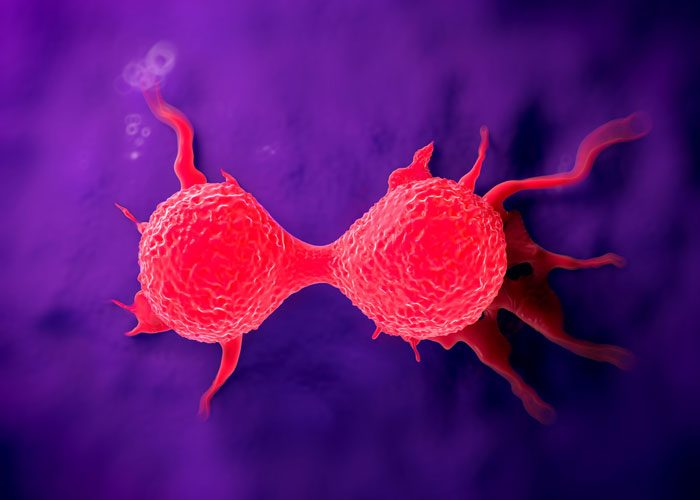Kisqali receives breakthrough therapy designation for advanced breast cancer
Posted: 3 January 2018 | Dr Zara Kassam (European Pharmaceutical Review) | No comments yet
Kisqali receives breakthrough therapy designation for initial endocrine-based treatment of pre- or perimenopausal women with HR+/HER2- advanced or metastatic breast cancer…


Novartis has announced Kisqali (ribociclib) received US Food and Drug Administration (FDA) breakthrough therapy designation for initial endocrine-based treatment of pre- or perimenopausal women with hormone-receptor-positive, human epidermal growth factor receptor-2 negative (HR+/HER2-) advanced or metastatic breast cancer in combination with tamoxifen or an aromatase inhibitor.
This Breakthrough Therapy designation is based on positive results of the Phase III MONALEESA-7 trial demonstrating Kisqali in combination with tamoxifen or an aromatase inhibitor as initial endocrine-based therapy significantly prolonged progression-free survival (PFS) compared to endocrine therapy alone (median PFS 23.8 (95% CI: 19.2 months-not reached) vs. 13.0 months (95% CI: 11.0-16.4 months); HR=0.553; 95% CI: 0.441-0.694; p<0.0001)1.
Younger women often have distinct treatment goals and needs, and it is important for oncologists to offer effective and well-studied treatment options for their specific disease.
A total of 672 women ranging from 25-58 years in age were enrolled and randomised in the trial1. All treatment combinations also included goserelin1. Treatment benefit with Kisqali combination therapy was consistent compared to the overall population regardless of treatment with tamoxifen or aromatase inhibitor endocrine partners, and across predefined patient subgroups1.
“This Breakthrough Therapy designation reflects the significance and promise of the MONALEESA-7 data presented at SABCS last month,” said Dr Samit Hirawat, Head of Novartis Oncology Global Drug Development. “Younger women often have distinct treatment goals and needs, and it is important for oncologists to offer effective and well-studied treatment options for their specific disease. We look forward to working with FDA to make this combination therapy available to premenopausal women living with HR+/HER2- advanced breast cancer in the US as soon as possible.”
MONALEESA-7 was the first Phase III trial entirely dedicated to evaluating a CDK4/6 inhibitor in premenopausal women with HR+/HER2- advanced breast cancer. The trial evaluated Kisqali in combination with oral endocrine therapies (tamoxifen or an aromatase inhibitor) and goserelin compared to oral endocrine therapy and goserelin in this patient population. In subgroup analyses of median PFS by an endocrine partner, Kisqali in combination with tamoxifen and goserelin demonstrated 22.1 months median PFS compared to 11.0 months for tamoxifen and goserelin alone; Kisqali in combination with an aromatase inhibitor and goserelin demonstrated 27.5 months median PFS compared to 13.8 months for an aromatase inhibitor and goserelin alone1.
No new safety signals were observed in the MONALEESA-7 trial; adverse events were generally consistent with those observed in MONALEESA-2, identified early and mostly managed through dose interruptions or reductions. Combination treatment with Kisqali was well tolerated with a discontinuation rate due to adverse events of 3.6% compared to 3.0% in patients who received endocrine therapy alone. The most common (>=5%) grade 3/4 adverse events in patients receiving Kisqali combination therapy compared to endocrine therapy alone were neutropenia (60.6% vs 3.6%) and leukopenia (14.3% vs 1.2%)1.
Premenopausal breast cancer is a biologically distinct and more aggressive disease than postmenopausal breast cancer, and it is the leading cause of cancer death in women 20-59 years old2,3.
This Breakthrough Therapy designation marks the second for Kisqali. The first Breakthrough Therapy designation for Kisqali was granted in August 2016 based on results of the Phase III MONALEESA-2 trial.
About Kisqali (ribociclib)
Kisqali is a selective cyclin-dependent kinase inhibitor, a class of drugs that help slow the progression of cancer by inhibiting two proteins called cyclin-dependent kinase 4 and 6 (CDK4/6). These proteins, when over-activated, can enable cancer cells to grow and divide too quickly. Targeting CDK4/6 with enhanced precision may play a role in ensuring that cancer cells do not continue to replicate uncontrollably.
Kisqali was approved by the European Commission in August 2017, as initial endocrine-based therapy for postmenopausal women with HR+/HER2- locally advanced or metastatic breast cancer in combination with an aromatase inhibitor based on findings from the pivotal MONALEESA-2 trial. Kisqali is not currently approved for use in premenopausal women.
Kisqali is approved for use in 45 countries around the world, including the United States and European Union member states. Kisqali was developed by the Novartis Institutes for BioMedical Research (NIBR) under a research collaboration with Astex Pharmaceuticals.
References
[1] Tripathy D, Sohn J, Im S, et al. First-line ribociclib or placebo combined with goserelin and tamoxifen or a non-steroidal aromatase inhibitor in premenopausal women with hormone receptor-positive, HER2-negative advanced breast cancer: results from the randomised Phase III MONALEESA-7 trial. Presented at the San Antonio Breast Cancer Symposium (SABCS), December 6, 2017, San Antonio, Texas (abstract#S2-05).
[2] World Health Organization. Women’s health fact sheet. September 2013. Available at http://www.who.int/mediacentre/factsheets/fs334/en/. Accessed October 2017.
[3] Benz CC. Impact of aging on the biology of breast cancer. Crit Rev Oncol Hematol. 2008;66:65-74
Related topics
Related organisations
Astex Pharmaceuticals., Novartis, Novartis Institutes for BioMedical Research (NIBR)








